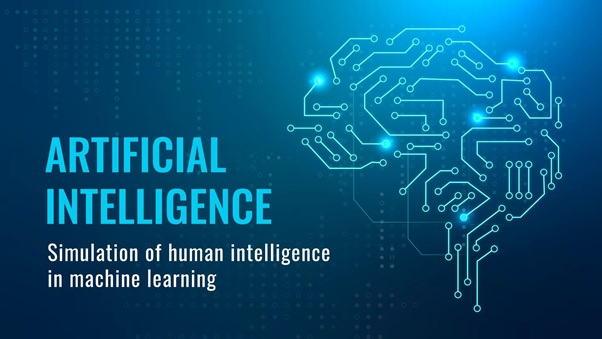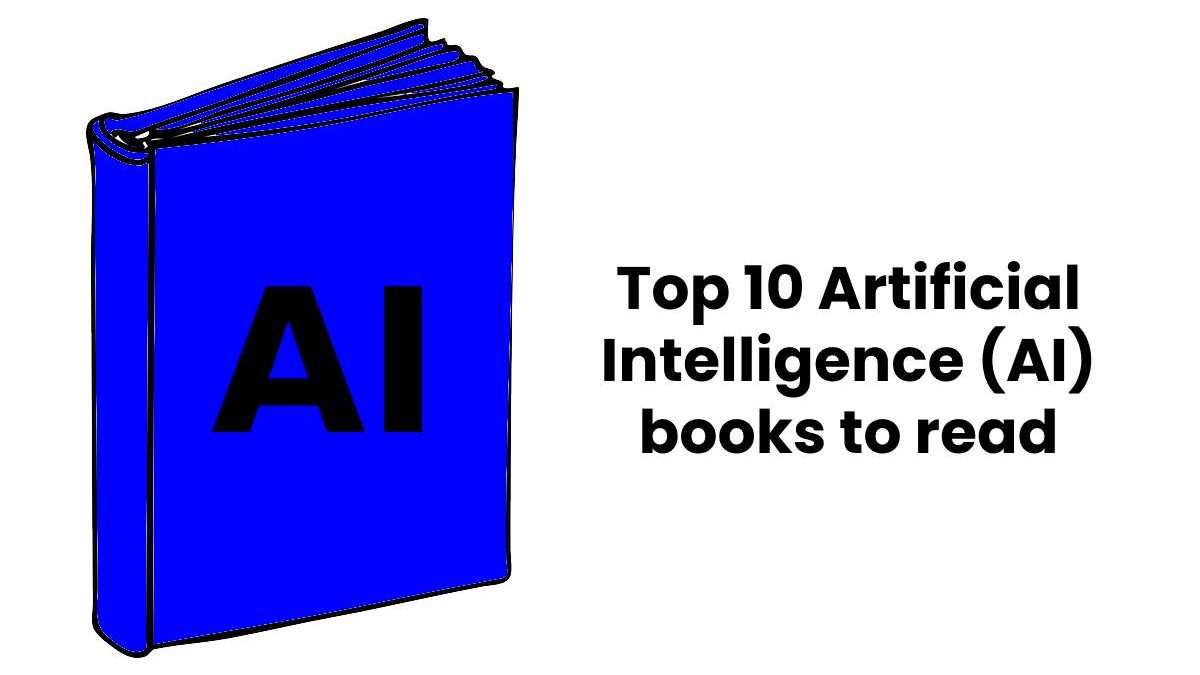Table of Contents
Introduction
In today’s fast-growing economy, AI becomes the biggest commercial opportunity to be future-ready. The market size of AI is predicted to reach $180 billion by 2025.
AI plays a vital role in transforming industries. This results in Global GDP growth will be 14% higher by 2030.
The productivity benefits of AI require businesses for massive upskilling initiatives to help employees be prepared for future jobs.
What is Artificial Intelligence?
Artificial Intelligence is a science of training machines to replicate human tasks. AI is currently the cutting-edge technology in the market. It is the simulation of natural intelligence in machines that are programmed to learn with experience and perform complex algorithms. It is mainly focused on Reasoning, generalized learning, and Problem-solving. AI is used in Cars, Smartphones, social media, Video games, Banking, Surveillance and many other aspects of our life.
Top 10 books list
1. Superintelligence: Paths, Dangers, Strategies by Nick Bostrom
Overview: If machine brains go beyond human brains in general intelligence, then this superintelligence could become very powerful. How to achieve a controlled detonation or intelligence explosion survival? To get closer to this answer this book picks its way carefully through a vast tract of difficult intellectual terrain. An exciting journey takes us to the frontiers thinking about the human condition and the future of intelligent life. Read the book and know about oracles, genies, singletons, mind crime, instrumental convergence, tripwires and different technological development. We find Nick Bostrom’s writing is so lucid that it somehow makes it all easy to read this book.
2. Artificial Intelligence: Third edition: A modern Approach by Pearson
Overview: This Artificial Intelligence book is suitable for formal and non-formal learners. State of the art introduction to theory and practical knowledge of AI talks about the important applications of AI technology, such as widespread deployment of practical speech recognition, autonomous vehicle, robotics and machine translation. It stands out from other books by its simple, categorized and organized manner and it is great to know how much AI is within us in our day-to-day life. It also discusses advanced growth in the field like deep learning, computer vision and probabilistic reasoning. For computer professionals, cognitive scientists and linguists who are interested in artificial intelligence, your search for books ends here.
3. Artificial Intelligence Basics: A Non-Technical Introduction by Tom Taulli
Overview: Through this Artificial Intelligence book you will be able to understand the basics of artificial intelligence and its implications that are essential for growth and success. It gives an overview of tutorial introduction to natural language processing, deep learning, machine learning, robotics. The further author expands questions. On the impact of AI’s influence on ethics, governments, corporate structures, social trends and everyday life. AI is the present and future of our business. Strengthening our prowess on the subject will provide invaluable to our preparation for the future tech and if you need to be a part of this then Artificial Intelligence Basics is the indispensable guide.
4. Life 3.0: Being Human in The Age of Artificial Intelligence by Max Tegmark
Overview: This book takes readers into the AI thought processes to investigate the future of humans. Taking us to the heart of the latest AI on how to keep AI beneficial separates reality from myths to explore the next phase of our existence. The author explains how to prosper through automation without leaving people lacking income or purpose, how to ensure that future AI systems work as intended without malfunctioning or hacked and how to thrive in life with AI ahead of us. Does AI flourish life or eventually machines outsmart all our tasks read this book to find the solution.
5. Deep Learning (Adaptive Computation and Machine Learning series) by Ian Goodfellow, Yoshua Bengio, Aaron Courville
Overview: Deep learning is like machine learning that enables computers to understand how the world works in terms of a hierarchy of concepts and learn from experience. A graph of these hierarchies would be deep layers but it allows computers to learn complicated concepts by building simpler ones. This book introduces a broad range of concepts in deep learning. The book offers research perspectives, theoretical topics as linear factor models, representation learning, auto-encoders, partition function, Monte Carlo methods and deep generative models. This book can be used by undergraduate or graduate students planning to pursue a career in either industry or research using deep learning in their platforms.

6. Algorithms to live by The Computer Science of Human Decisions by Brian Christian, Tom Griffiths
Overview: A great exploration of how computer algorithms can be applied to our everyday lives. Exploring how computer algorithm insights can be applied to our everyday lives. This Artificial Intelligence book helps to solve decision-making problems and illuminate the workings of the human mind. How many tasks should you take in the first place and what is the balance of new activities and most fulfilling? The computers untangle human questions like when to leave things to chance, how to have a better hunch. And the authors have found the solutions to teach us. They show how algorithms developed for computers can organize the inbox to find a parking spot. They have rules and fascinating algorithms that turn computer wisdom into human strategies.
7. Applied Artificial Intelligence: A Handbook for Business Leaders by Mariya Yao, Marlene Jia, Adelyn Zhou
Overview: This book is suitable for business personnel who want to become more successful in their field. To understand your view on having more employers or if everything is controlled by a computer. This book is reader-friendly and densely packed with important information. Times have changed so you need to be updated to compete with your business colleagues. This is a good opportunity to break down how technology has developed and it will impact beautifully by converting complex terms and thoughts into standard ones that everyone can understand.
8. AI Superpowers: China, Silicon Valley, and The New World Order by Kai-Fu Lee
Overview: Dr Kai-Fu Lee is one of the world’s most respected AI experts. The author senses because of the unprecedented developments in AI, dramatic changes will be happening much sooner than expected. US-Sino AI competition begins to heat things, Lee suggests the US and China accept and embrace great responsibilities that come with significant technological power. The author predicts that AI will have a strong impact on white-collar jobs. Also, he provides a clear picture of which jobs will be affected, which can be enhanced, and how we find solutions to some of the most profound changes in human history.
9. Artificial Intelligence Engines: A Tutorial Introduction to the Mathematics of deep by James V Stone
Overview: Over conventional computers, our brain always has a fundamental advantage, it can learn. An emerging new generation of artificial intelligence in the form of deep neural networks is rapidly eliminating that advantage. These deep neural networks rely on algorithms to master a wide variety of tasks that includes cancer diagnosis, speech and object recognition, robotic control at superhuman levels of performance. In this book, key neural network algorithms are explained formally and followed by detailed mathematical analyses. It is written in an informal style with tutorial appendices, a comprehensive glossary and a list of further readings is an ideal introduction for algorithmic engines of modern intelligence.
10. Prediction Machines: The Simple Economics of Artificial Intelligence by Ajay Agrawal, Joshua Gans, Avi Goldfarb
Overview: To know what AI means for your business, read this book to find out. Artificial intelligence seems impossible at first, but magically bringing machines to life by driving cars, teaching, trading. How should companies decode strategies, governments design policies and people plan their lives to this different world? With these uncertainties in these Prediction Machines, three eminent economists spoke about the rise of AI as a drop in the cost of prediction. Our businesses and personal lives are riddled with prediction that is the heart of decision making under uncertainty. However, this prediction tool increases productivity by creating new opportunities for business structures and strategies to compete.
Conclusion/Key Takeaways
Artificial Intelligence will reach the super intelligence stage in a few years. AI has created a major impact on students, engineers, business leaders, entrepreneurs and world leaders. A new technology transition has begun and most businesses have started incorporating AI for better revenues and profits. If it is implemented responsibly AI can benefit society. The whole idea is to transform AI without harming the goodwill of people. There are lots of courses and certifications available online for this field. There is a promising opportunity available if you keep up your intent burning.

